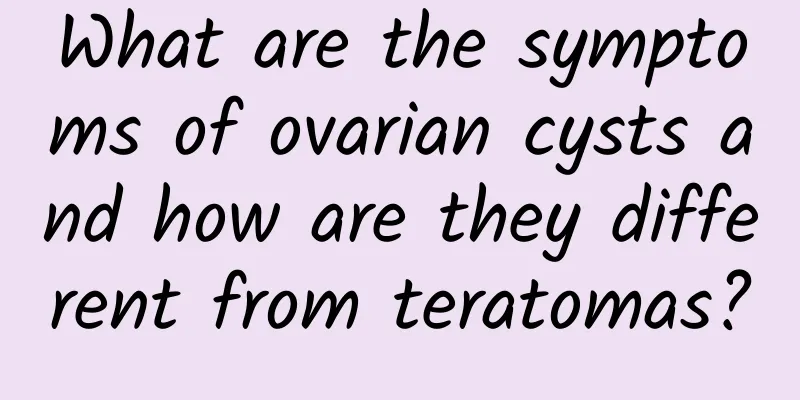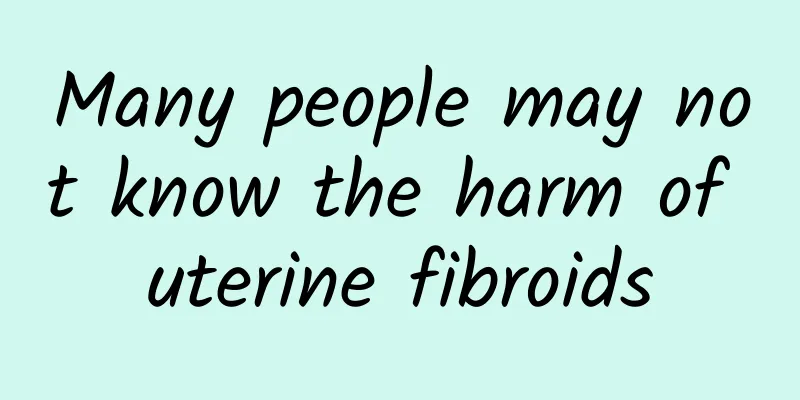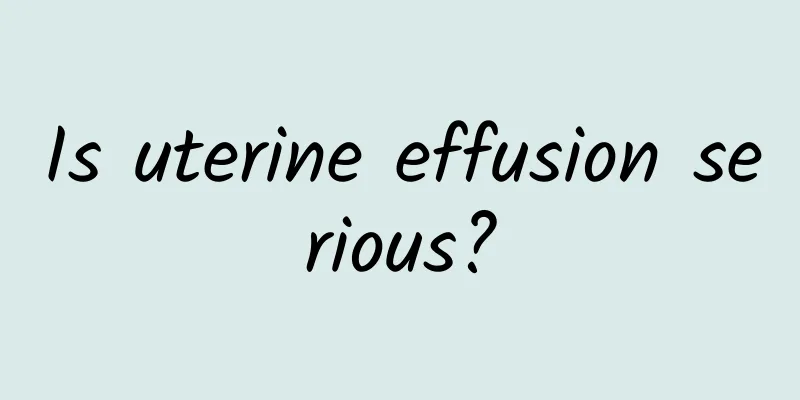What are the symptoms of ovarian cysts and how are they different from teratomas?

|
We can help diagnose the symptoms of gynecological diseases, and ovarian cysts are similar to many gynecological diseases. So, what are the symptoms of ovarian cysts? How is it different from a teratoma? Symptoms of ovarian cysts include: 1. Abdominal pain: If the tumor has no complications, the pain is rare. Patients with ovarian tumors may feel abdominal pain, especially when it occurs suddenly. It is usually caused by tumor pedicle torsion or tumor rupture, bleeding or infection. Abdominal pain and leg pain caused by malignant cysts often cause patients to seek emergency treatment. 2. Discomfort in the lower abdomen: Due to the weight of the tumor itself, affected by intestinal peristalsis and posture changes, the tumor moves in the pelvic cavity, involving its pedicle and pelvic infundibulum ligament, causing swelling and descent of the lower abdomen or bone fossa. 3. Thickening of abdominal circumference and increased abdominal swelling: Patients with ovarian cysts notice that their shirts or belts appear tight, or occasionally feel it in the morning, so they press their abdomen and find that their abdomen is swollen, coupled with abdominal distension and discomfort. Although both ovarian teratoma and ovarian cyst are ovarian lesions, there are actually many differences between the two. Take the susceptible population as an example. The age of onset of the former ranges from newborns to old women in their 90s. The latter is only very common in women aged 20 to 50, and most older women are benign. Teratoma is a common disease in women, a frequently occurring disease, and a benign ovarian tumor. Teratoma is not brought by the mother, but is a tumor that may occur at any time. Ovarian cysts often occur during the reproductive age when endocrine secretion is active. Therefore, clinically, ovarian diseases are believed to be closely related to endocrine disorders. Most cysts are benign, but they can also develop into malignant ones and should be taken seriously. The following drugs are used to treat related gynecological diseases: Breast lobular hyperplasia, uterine fibroids, and ovarian cysts are caused by qi stagnation and blood stasis. Hongjin Xiaojie Capsule: Used to treat lobular hyperplasia of the breast, uterine fibroids, and ovarian cysts. Xiaojie'an Capsules: Used for breast lumps, breast lobular hyperplasia, ovarian cysts, uterine fibroids, etc. caused by qi stagnation and blood stasis. |
<<: What should I do if my menstruation has not come for a long time?
>>: Is mild uterine prolapse serious?
Recommend
Will you lose weight if you exercise a lot? Long-term weight loss
I wonder if you have had such experience? After y...
When is the due date if the last menstrual period is January 5?
If the last menstrual period was January 5, the e...
What are the types of ovarian cysts?
What are the types of ovarian cysts? Experts dete...
How to treat dysmenorrhea and breast pain?
How to treat dysmenorrhea and breast pain? Dysmen...
What is the cause of vulvar leukoplakia?
Among the many gynecological diseases, vulvar leu...
Is it wrong to only drink milk or soy milk on an empty stomach? These 8 types of food should not be eaten on an empty stomach to avoid harming your body
Some people are accustomed to drinking only milk ...
What are the most accurate methods for diagnosing vulvar leukoplakia?
The incidence of vulvar leukoplakia is very high ...
Do women know what cervical erosion is? 2 small folk remedies for treating cervical erosion
Cervical erosion, a symptom of cervicitis, is a c...
Korean style dance to lose weight and accelerate fat burning, reduce 2 kg a month
Do you want to lose weight by dancing to the popu...
Diabetic patients should be careful about their diet during the Mid-Autumn Festival! Nutritionists urge: Diabetics to follow these two principles to keep their blood sugar under control
The Mid-Autumn Festival is approaching, and all k...
24 hours countdown to the winter solstice, be the first to report on eating glutinous rice balls in a healthy way
The winter solstice is coming! Speaking of the Wi...
Fermented milk = sugary drink! 100 ml contains 12 grams of sugar
Sweet and sour taste good? Does lactic acid bacte...
Pelvic inflammatory disease prevention and care
Pelvic inflammatory disease is often divided into...
Mother and daughter work together to lose 112 kilograms! "Gastric Reduction and Colonectomy" Ends Morbid Obesity
Is obesity hereditary? When a family member has o...
Who are most likely to suffer from cervical erosion?
Cervical erosion is a very common gynecological d...









